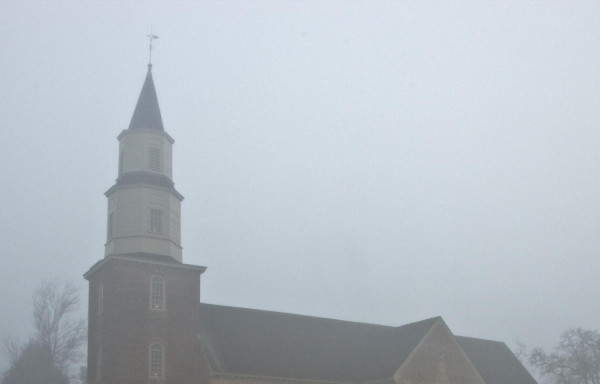Many Americans believe strongly in the idea that this is a Christian nation. Surely the vast majority of citizens in the founding generations identified with one denomination or another. Citing those origins is one way to emphasize the idea of a particular kind of unity, a unity, perhaps, that we might like to have more of today.
But our debates over Christian origins obscures an interesting question, one which Rebecca Goetz explores in The Baptism of Early Virginia, which she will be talking about in Williamsburg on April 29. That question is, even if we accept a relatively Christian identity in colonial America, how did it influence that world?
Was Christian belief a certain force for good? Where did it fall short? And what might that tell us about our invocation of religion in the public sphere today?
Goetz, a professor of history at New York University, explores the ways that Christianity contributed to the creation of racial difference in her book “The Baptism of Early Virginia.”
Slavery was not present in Virginia’s first years. For several generations it was indentured servitude that was the norm. Slavery came later, and only gradually did race become the decisive factor in whether a person was slave or free.
The book focuses most squarely on a key moment in that transition, a 1667 law passed in response to the issue of whether a slave by birth might gain freedom through baptism.
It was one thing to enslave heathens. It was quite another to enslave fellow Christians. In the late 1600s, this was the question Virginians had to come to terms with.
The genesis of Goetz’s research was a quotation she encountered, one that seemed straightforward enough but raised as many questions as it answered.
The Rev. Morgan Godwyn, a Church of England minister, came to Virginia in the 1660s and drew the ire of the local planters when he baptized some enslaved persons.
He was a witness to at least a portion of the process that created a race-based slavery.
On his return to England, he wrote:
These two words, Negro and Slave, being by custom grown homogeneous and convertible; even as Negro and Christian, Englishman and Heathen, are by the like corrupt custom and partiality made opposites; thereby as it were implying, that the one could not be Christians, nor the other Infidels.
“That really spoke to me,” says Goetz, “because a lot of the reading I’d been doing stressed how Protestants saw themselves as the true Christians and as a church that was for everyone. I wanted to understand how that changed.”
Goetz wondered where else she might discover evidence of this apparent contradiction. She started by examining Virginia’s 17th century laws regulating slavery and Christian rituals like baptism and marriage.
But often a statute’s text only tells part of the story. How is a law enforced? How do the people act in response to it?
Gathering historical clues was a substantial part of Goetz’s work, but interpreting it, she says, “was like nailing jelly to a wall.”
“You don’t have any planters saying, ‘I’m absolutely going to prevent my enslaved people from becoming Christian,’ so you have to look at what they’re doing and what kinds of laws they’re passing and what they’re saying in court. You have to think about what their words and actions meant in context.”
The notorious 1667 law is one example. “The intent,” says Goetz, “was to make it possible to baptize enslaved people without losing them to freedom, but the cumulative effect was that by the 18th century few slaves were being baptized.”
Some planters saw a benefit to baptizing slaves but were concerned about losing ground economically or socially if they allowed it.
“People interpret their beliefs and structure their beliefs in ways that benefit them,” says Goetz. “For example, if you believe that an enslaved person who converts to Christianity should be freed, that’s going to go against the interests of the majority of planters in Virginia. The question becomes, how do you reconceptualize what you believe in order to make sure that your interests are not threatened?”
“It’s not really religion’s fault. It’s the use to which people put those sets of beliefs and rituals.”
The stain of racial slavery was supported in part by the willingness of Virginians to find religious grounds to rationalize their actions. It’s a lesson worth remembering.
Religion Month activities, including these lectures, are generously supported by a gift from the Kern Family Foundation.


Leave a Reply